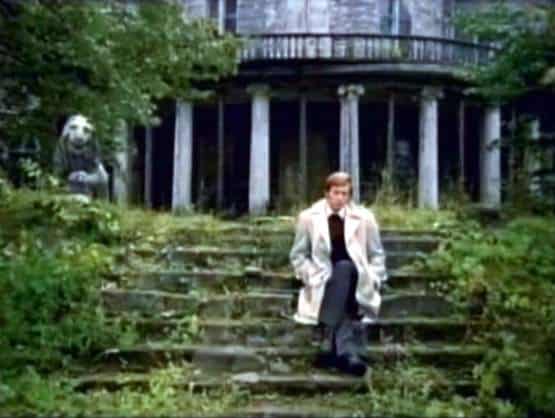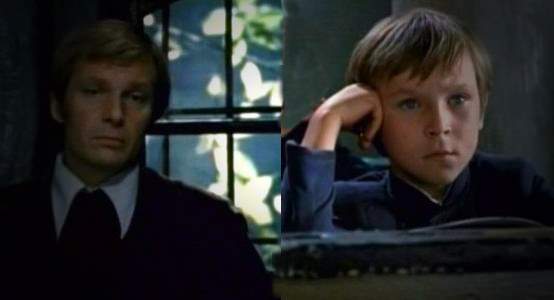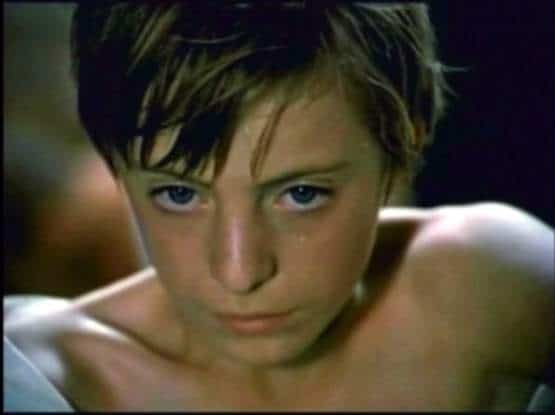 Films are predominantly made for entertainment. However, some, such as the Russian movie The Orphans (1977) — thanks to its intelligently composed narrative — lead its viewers to powerful conclusions about life. The main protagonist is a writer who is trying hard to make sense of the childhood experiences that shaped his personality.
Films are predominantly made for entertainment. However, some, such as the Russian movie The Orphans (1977) — thanks to its intelligently composed narrative — lead its viewers to powerful conclusions about life. The main protagonist is a writer who is trying hard to make sense of the childhood experiences that shaped his personality.
The film opens up with a quote:
“Children and War – there is no more dreadful conjunction in the world between two conflicting realities”
 The main protagonist recalls the times when he was a little boy, when he and his sister had to steal food to survive. World War II had just ended, leaving them as orphans. The grown-up writer narrates the story, telling us how his big sister, who was like a mother to him, died at the age of fourteen. From here, he finds out that they had two brothers who were adopted at an early age. Then, through a series of flashbacks, the viewer is taken back to the writer’s past. At the same time, the adult writer simultaneously embarks on an emotional quest to reunite with a family he never had the chance to know.
The main protagonist recalls the times when he was a little boy, when he and his sister had to steal food to survive. World War II had just ended, leaving them as orphans. The grown-up writer narrates the story, telling us how his big sister, who was like a mother to him, died at the age of fourteen. From here, he finds out that they had two brothers who were adopted at an early age. Then, through a series of flashbacks, the viewer is taken back to the writer’s past. At the same time, the adult writer simultaneously embarks on an emotional quest to reunite with a family he never had the chance to know.
The majority of his childhood years were spent in an orphanage run by the government, which employed retired soldiers who tried their best to care for the children who had lost their parents during the war. The discipline is strict, the education military-like, yet the devotion of the teachers to their students can be compared to that of the music teacher to his pupils in the French film Les choristers.

The film belongs to the coming-of-age genre, yet it can also be described as a psychological drama. The storytelling is similar to what you would find in many memoirs, concentrating on the development of the main protagonist’s personality, Alyosha (Aleksei Cherstvov). Just like his hero, Director Nikolai Gubenko was orphaned during World War II and sent to a special home. His emotional involvement with the story (also written by him), combined with the exceptional performances of the actors and the moody soundtrack (Vivaldi, Marcello, and Corelli), has crafted a real cinematographic masterpiece.

Be aware that the film features some very poignant scenes, which can have a deep impact on your emotions. For example, in one very touching scene involving a boy whose family was killed in a concentration camp, a close-up on the boy’s face (especially his eyes) conveys all the horrible scenes he has had to witness.
The overall atmosphere of the film is melancholic, and the action is moderately slow-paced. The photographic qualities of the film are admirable. Some of the scenes are purposefully overcast, while others make use of natural lighting and framing to draw around an important moment of the character’s development (a similar approach to that often used in portrait photography). The camera is mostly steady, making the viewer focus on the environment.

Many reviewers compare The Orphans with Tarkovsky’s 1975 film Zerkalo. While both films were directed by two of the most influential names in Russian cinema, The Orphans’ message is more universal, and the film is more likely to appeal to an international audience.
TheSkyKid.com would like to thank cvmc.net for providing a review copy of the Original Director’s Cut of The Orphans. Although the DVD lacks extras, it includes restored scenes and easy-to-read English subtitles. Film title: Podranki (1977)
Film title: Podranki (1977)
Alternative titles : Wounded Game, The Orphans, Winged Birds
Release data: 20 June 1977
Director : Nikolai Gubenko
Cast: Aleksei Cherstvov , Juozas Budraitis,Aleksandr Kalyagin, Zhanna Bolotova,Rolan Bykov,Olga Strogova and others